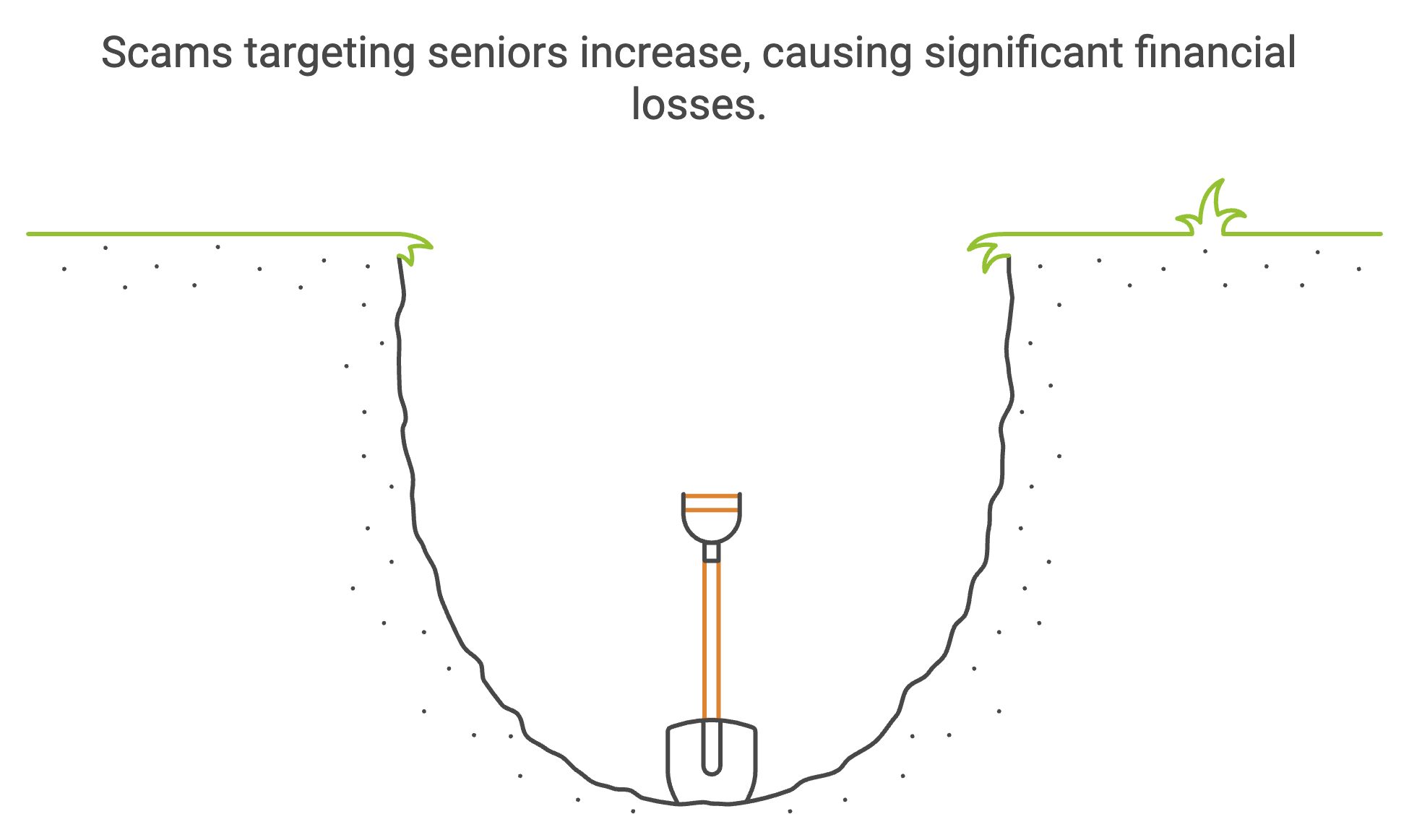Scam Protection for Seniors
In today’s interconnected world, scams are becoming increasingly sophisticated, targeting individuals across all demographics. However, senior citizens in the United States are particularly vulnerable, both online and offline. According to the FBI, seniors lose billions of dollars annually to fraud, making it imperative to raise awareness and protect this at-risk group.
The Scale of the Problem
Digital Scams: With the rise of digital platforms, scammers have found new avenues to exploit vulnerable individuals. In 2022, the Internet Crime Complaint Center (IC3) reported that victims over the age of 60 accounted for over $3 billion in losses due to online fraud. This marks a significant increase from previous years, driven by scams like phishing, tech support fraud, and online shopping scams.
- Tech Support Scams: Seniors are often targeted by scammers posing as tech support from well-known companies. These fraudsters convince victims that their computer has a virus and charge them for unnecessary services or gain access to personal information. In 2022 alone, tech support scams resulted in losses exceeding $347 million among seniors.
- Phishing: Phishing scams involve fraudulent emails or messages that trick individuals into revealing sensitive information like passwords or credit card numbers. Seniors, who may not be as familiar with digital security practices, are prime targets. The FTC reported that in 2022, seniors lost nearly $1 billion to phishing scams.
Offline Scams: Offline, seniors face equally dangerous threats. Scammers use phone calls, mail, and even in-person interactions to defraud older adults. The National Council on Aging (NCOA) notes that one in ten Americans aged 60 or older has experienced some form of elder abuse, including financial exploitation.
- Grandparent Scams: In this scam, a fraudster poses as a grandchild in distress, asking for money to be wired urgently. Seniors, wanting to help their loved ones, may not think twice before sending money. The FBI warns that this scam is on the rise, with thousands of cases reported annually.
- Medicare Fraud: Given that most seniors are enrolled in Medicare, it’s a prime target for fraudsters. Scammers steal personal information and file false claims, leaving seniors to deal with the financial and legal aftermath. In 2022, Medicare fraud resulted in losses of over $60 billion nationwide, a significant portion of which affected seniors directly.
Why Are Seniors Targeted?
Seniors are often targeted because they are perceived as more trusting and less likely to report fraud due to shame or fear of losing independence. Many also have significant savings, making them attractive targets. Furthermore, the rapid pace of technological change can leave some older adults less equipped to recognize digital threats.
Protecting Our Seniors
Preventing these scams requires a collective effort. Family members should have open conversations with their elderly relatives about common scams and ensure they are aware of potential dangers. Providing seniors with resources on digital literacy and fraud prevention is also crucial.
For seniors themselves, it’s important to stay vigilant. Never give out personal information over the phone or online unless you are certain of the recipient’s identity. Be skeptical of unsolicited requests for money or personal details, and when in doubt, consult with a trusted family member or friend.
Conclusion
The rise in scams targeting seniors is a pressing issue that demands attention. With billions of dollars at stake and the emotional toll these scams take on victims, it’s essential that we act now to protect our elderly loved ones. Through education, awareness, and proactive measures, we can help ensure that our senior citizens live their golden years free from the fear of exploitation.
References:
- FBI Internet Crime Complaint Center (IC3). (2022). Elder Fraud Report. Retrieved from IC3 website
- Federal Trade Commission (FTC). (2022). Consumer Sentinel Network Data Book 2022. Retrieved from FTC website
- National Council on Aging (NCOA). (2022). Elder Financial Abuse. Retrieved from NCOA website

Rajat Aggarwal
I'm based in Seattle and have spent over a decade in the software industry. Recently, I've discovered my true passion: teaching and maximizing the impact of the resources I have to create meaningful outcomes. When I’m not sharing knowledge, you’ll likely find me diving into random science books from the library, letting my curiosity whisk me away into fascinating new worlds. I’d love to connect—feel free to reach out on Facebook or LinkedIn! Let’s inspire and grow together.



